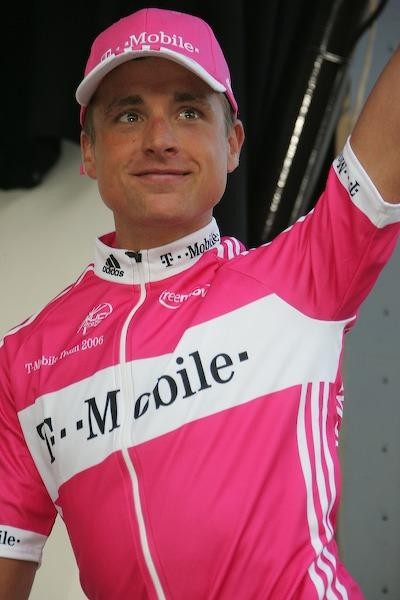Sinkewitz didn't think it was wrong
By Susan Westemeyer On the evening of June 8, while attending a training camp in preparation for the...

By Susan Westemeyer
On the evening of June 8, while attending a training camp in preparation for the Tour de France, Patrik Sinkewitz smeared a testosterone gel on his upper arm. "I thought, it can't hurt." But it did hurt – it got him fired from his job at Team T-Mobile, brought about the cancellation of German public broadcasting of the Tour and nearly caused his team's sponsor to pull out of its contract.
In an extensive interview with the German news magazine Spiegel, the 27 year-old explained why he did it. "I had doubts about my form, despite the win at Henninger Turm. The year didn't go the way I had imagined, especially the Classics," he said. "The crazy thing is, that I actually didn't have any pressure on me," he added. "Everyone was satisfied with me. Except for me. I wanted to be better."
On the next day, he and his team-mates returned from a long ride to find the anti-doping controllers waiting for them. They knew the controllers were there, since a soigneur had informed the directeur sportif who was accompanying them. However, Sinkewitz was not worried. "I knew that it was forbidden, sure. But I assumed that the amount was too low to be picked up in a test. I never had the feeling of doing something wrong."
The lack of guilt feelings or of understanding that he did wrong runs through the interview – he knew it was wrong, but did it anyway. "That's the way we cyclists have always handled it. I didn't think about it when I put the stuff on," he admitted. "But taking something in order to improve my performance was simply a part of my life."
After the 2006 season, sponsor T-Mobile made a clean sweep of the team, installing new management with a tough new anti-doping course – a message which Sinkewitz didn't seem to understand. "Of course the word was no doping!" he said. "I understood the message this way, 'don't get caught!' But now I know that they really meant it seriously."
Sinkewitz turned pro at age 21 with the Italian team Mapei, where there was no doping, he said. However, he said things were "different" at his next team of Quick.Step. "There we understood it that we weren't doing anything differently than anyone else was doing. As though it was part of the profession."
Get The Leadout Newsletter
The latest race content, interviews, features, reviews and expert buying guides, direct to your inbox!
Asked directly if team manager Patrick Lefevere knew about what was going on, Sinkewitz responded, "It is hard to believe that he didn't. There are things that nobody speaks about but which are nevertheless made clear. How many details he knew, I don't know."
Sinkewitz continued to refuse to name names, but sometimes gave coy answers as to whether T-Mobile team-mates were involved. "Theoretically only the doctor and I [knew about the blood doping]," he said. "Even if I maybe thought that other riders were having similar treatments, I didn't really know what the others were doing." He also refused to give the name of the doctor(s) who specifically handled the transfusions.
The day before the 2006 Tour de France, his captain Jan Ullrich was suspended on suspicion of being a client of Doctor Eufemiano Fuentes, who practiced blood doping. However, that didn't stop Sinkewitz, who on the evening of the first stage of the Tour hopped in a car and drove the 90 kilometres from Strasbourg, France, to Freiburg, Germany, for a transfusion.
Now he sits home alone. "Almost all my contacts were broken off from one day to the next," he said. "It is as if I don't exist any more. Now, I have lost my job and have nothing except for my house. Now, I could use help, but nobody is there for me. When you are successful, everyone congratulates you, of course, but to find it was it is like when there is no more success, that is something else. It's like having the carpet pulled out from under you."